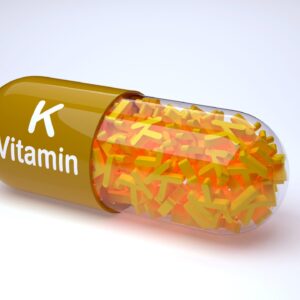Introduction
Nootropics, often referred to as “smart drugs” or “cognitive enhancers,” are a class of compounds gaining popularity for their potential to enhance cognitive function, memory, and overall mental clarity. Taurine, an amino acid naturally found in various foods and often associated with energy drinks, is one such nootropic that has drawn attention for its potential cognitive benefits. In this comprehensive guide, we will delve into the world of taurine nootropics, exploring their potential advantages, uses, and effects on brain health and cognitive function.
Understanding Taurine
Taurine is a sulfur-containing amino acid that plays various essential roles in the body. It is found in high concentrations in certain tissues, including the brain, heart, and muscles. While it is not considered an essential amino acid (meaning the body can synthesize it), taurine is obtained through dietary sources and supplements, and its importance in overall health is becoming increasingly recognized.
Taurine has been studied for its involvement in various biological processes, including antioxidant protection, electrolyte balance, and cell membrane stability. It also appears to have neuroprotective and neuromodulatory properties that make it an intriguing nootropic.
The Potential Benefits of Taurine Nootropics
Taurine nootropics offer several potential cognitive and overall health benefits:
- Improved Focus and Attention: Taurine has been studied for its potential to enhance cognitive function by improving focus, concentration, and attention span. It may help reduce distractibility and enhance mental clarity.
- Reduced Anxiety and Stress: Taurine appears to have anxiolytic (anxiety-reducing) properties, which can lead to a sense of calm and relaxation. This may be especially useful for individuals dealing with stress and anxiety.
- Neuroprotection: Taurine exhibits neuroprotective properties, helping to safeguard brain cells from damage due to oxidative stress and neuroinflammation. This can contribute to maintaining cognitive function and reducing the risk of neurodegenerative conditions.
- Improved Memory: Some research suggests that taurine may enhance memory, particularly in tasks that involve working memory and recall. It may support the formation of new memories and the retrieval of existing ones.
- Enhanced Mood: Taurine has mood-enhancing potential and may contribute to an improved sense of well-being. It is believed to influence neurotransmitter systems associated with mood regulation.
- Cardiovascular Health: Taurine can have a positive impact on heart health, contributing to the prevention of conditions like high blood pressure and atherosclerosis. A healthy heart is essential for maintaining cognitive function.
- Energy and Fatigue Reduction: Taurine is associated with improved energy levels and reduced fatigue. It may help individuals stay alert and energized, especially during physically or mentally demanding tasks.
Sources of Taurine
Taurine is found naturally in various dietary sources, and it can also be obtained through supplements. Some dietary sources of taurine include:
- Animal-Based Foods: Meat, poultry, seafood, and dairy products are rich in taurine. These sources are particularly well-suited for individuals following an omnivorous diet.
- Plant-Based Foods: Some plant-based foods contain taurine in smaller amounts, such as seaweed and certain types of algae. These sources may be relevant for individuals following vegetarian or vegan diets.
- Supplements: Taurine supplements are available and can provide a convenient way to ensure adequate intake. They are available in various forms, including capsules, powders, and liquid solutions.
Potential Uses and Effects
- Improved Focus and Concentration: Taurine’s ability to enhance cognitive function may lead to improved focus, concentration, and attention, making it valuable for tasks that require mental clarity and precision.
- Anxiety Reduction: Taurine’s anxiolytic properties can help reduce anxiety and stress, promoting a sense of calm and relaxation.
- Memory Enhancement: Taurine may enhance memory, particularly in tasks that involve working memory and recall, by supporting the formation and retrieval of memories.
- Neuroprotection: The neuroprotective properties of taurine may help safeguard brain cells from damage due to oxidative stress and neuroinflammation, reducing the risk of cognitive decline.
- Mood Enhancement: Taurine’s influence on neurotransmitter systems associated with mood regulation can contribute to an improved sense of well-being and overall mood.
- Cardiovascular Health: Taurine’s positive effects on heart health can support overall cardiovascular well-being, preventing conditions like high blood pressure and atherosclerosis.
- Energy Enhancement: Taurine’s potential to improve energy levels and reduce fatigue can be beneficial for staying alert and energized, particularly during demanding physical or mental tasks.
Considerations and Precautions
- Individual Sensitivity: As with any nootropic, individual sensitivity to taurine can vary. Some individuals may experience side effects, such as digestive discomfort or jitteriness, when consuming large amounts.
- Caffeine Interaction: Taurine is sometimes combined with caffeine in energy drinks. The interaction between taurine and caffeine can vary from person to person, and excessive consumption should be avoided.
- Health Conditions: Individuals with specific health conditions, such as epilepsy, should exercise caution when considering taurine, as it may affect seizure thresholds.
- Dosage: The appropriate dosage of taurine can vary, and there is no established standard dose. Starting with lower doses and gradually increasing is advisable to gauge individual tolerance and effects.
Conclusion
Taurine nootropics, derived from the amino acid taurine, offer a range of cognitive and overall health benefits. From improved focus and memory to reduced anxiety and mood enhancement, taurine has a diverse set of potential advantages that make it an appealing option for those seeking to support their cognitive function and well-being.
As with any nootropic, it is essential to approach taurine with informed consideration. Individual responses to this compound can vary, and the appropriate dosage should be determined through experimentation and guidance from healthcare professionals, if necessary. Taurine’s potential to enhance cognitive function and contribute to overall health underscores the complex relationship between natural compounds and cognitive well-being, making it a valuable addition to the realm of nootropics.



